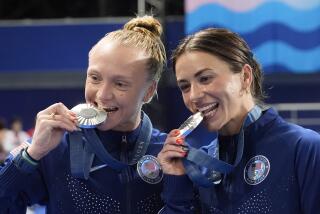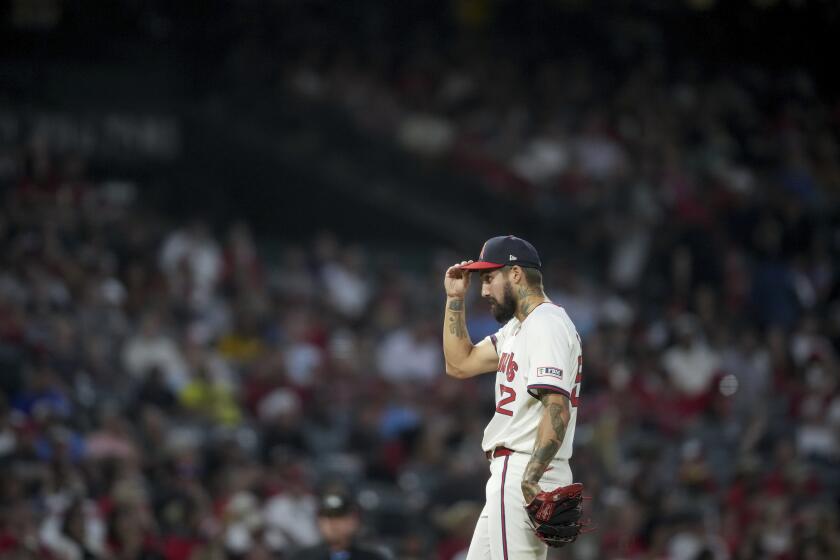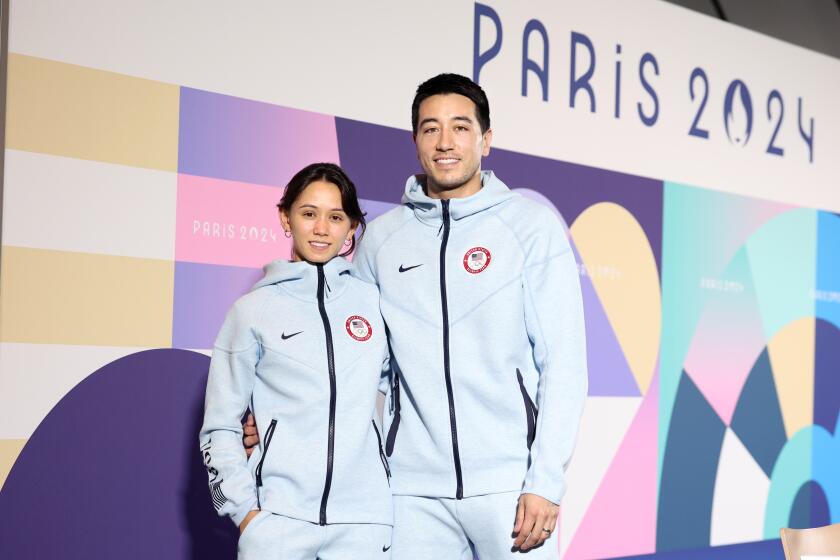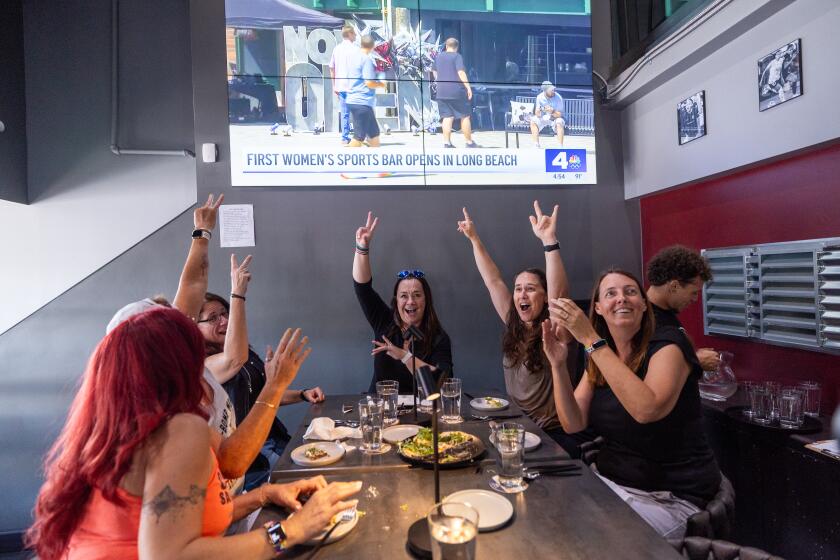ANALYSIS : Syracuse Basketball Team Will Pay a Price
On the last day of January, more than a month after the Syracuse Post-Standard had written of alleged NCAA violations in Syracuse’s basketball program, but nine days before the university had tacitly admitted to several by suspending seven of its players, Coach Jim Boeheim could see where all of this was headed. He wasn’t admitting guilt, he was predicting the future.
The university, which has a clean record in matters of NCAA compliance, had hired its own attorneys, who in turn had hired two NCAA-violation specialists, at a cost which eventually will run in the $600,000 range. A faculty committee was formed. These are familiar signs.
“We’ll end up turning ourselves in, by finding something that maybe is actually bad,” Boeheim said. “There isn’t one thing in the (Post-Standard) articles that will get us on probation. But we will end up getting on probation because of what we find ourselves. And we’re going to have to live with (an investigation) for six months.”
Just follow the signs. One Syracuse faculty member, interviewed recently, took great umbrage at the instantaneous joining of his institution with the likes of Nevada-Las Vegas, Kentucky, Illinois, Missouri and North Carolina State. Yet Syracuse already has begun walking in their tracks.
True enough, the other colleges all have been found guilty, where Syracuse is in the early stages of an investigation. However, the recent history of NCAA actions is that where there is smoke, there almost always is fire. Investigative newspaper stories at Kentucky, North Carolina State and Illinois, among others, were followed by sanctions. NCAA enforcement director David Berst has said that newspaper investigations are often a starting point for his body.
“You’d have to be rather obtuse not to see ... that there’s a good deal of supposition as to what this inquisition might show,” said David Bennett, a Syracuse history professor and faculty representative to the NCAA. “I am aware that (accusations prove true) in many cases.”
Among the allegations brought forth by the Post-Standard were that Syracuse players received favorable rates on cars and cash from boosters, small payments from Boeheim and that one player’s grade was changed. It was further reported that two players lived rent-free in the home of booster Joseph Giannuzzi, who has since been disassociated from the program, and that junior forward David Johnson had sexual relations with a 14-year-old girl during 1988 and 1989. Johnson is serving a campus probation.
None of the alleged violations have been verified by the NCAA, but Syracuse’s suspension (reversed three hours later by the NCAA eligibility committee) of seven players on Feb. 8 was an admission of some wrongdoing. As Syracuse’s internal investigation unfolds further, certain aspects of the school’s athletic future are certified. The program will almost certainly not be “brought down,” because the biggest ones can weather a heavy scandal. But there will be a cost.
The Coach: Even if Syracuse is exonerated, Boeheim will have, at the least, a soiled reputation, and at worst, no job. Last February, while Missouri’s program was under scrutiny that eventually would lead to a year’s removal from the NCAA Tournament, Coach Norm Stewart, whose record had been clean for 22 years, spent more than $50,000 in legal fees defending himself.
“There’s going to be a mark,” Stewart said, “and I’ll be lumped in with some others that I don’t want to be lumped in with.”
For instance: Jerry Tarkanian, Norm Sloan, Lou Henson, Jim Valvano. Each of whom has good and bad qualities, but shares one category. Boeheim is certain to join this list if Syracuse is found guilty, and likely to join it in any case, the accusations having become so public.
“I’m fine,” Boeheim said last week. “I’m trying to concentrate on doing the best job I can do. I never think ahead to the future. I only think ahead to the next game.”
Boeheim has admitted to twice giving players 20 dollars, but argued that in each case circumstances were such that no violation was committed. However, one high profile coach, who asked that his name not be used, said, “You never give a kid money under any circumstances. It’s too much of a risk. You just can’t do it.”
The Current Players: The notion that players are deeply affected by investigations is widely overblown. UNLV’s seniors (Larry Johnson and Stacey Augmon) have been interviewed dozens of times by the NCAA and vented their dismay by winning the national championship a year ago. They haven’t lost a game since. If this is heavy emotional baggage, dozens of programs would like to carry some.
For its part, Syracuse’s response to the ongoing turmoil was to win six consecutive games, raising its record to 23-3, going into Wednesday’s game with St. John’s.
“The whole thing makes basketball more fun,” Syracuse star Billy Owens said last week. “I just block everything out for the time that I’m on the floor.” Owens scored 36 points in Syracuse’s first home game after his “suspension.”
The Future Players: Recruiting suffers, but again, the results are not nearly as damaging as might be expected. “The most devastating effect is for the immediate recruiting,” said recruiting expert Bob Gibbons of Lenoir, N.C. “The biggest thing is the unknown, while the investigation is going on. Once the penalties are levied, (recruiting) picks up again.”
According to Gibbons, Syracuse is in danger of losing 6-8 forward Donyell Marshall of Reading, Pa., because of the investigation and 6-2 guard Anthony Harris of Danbury, Conn., who has committed to Syracuse, might try to leave if Syracuse is placed on probation. But these are short-term problems.
“After the initial shock, recruiters turn negatives into positives,” Gibbons said. “They tell kids, ‘Come here and you’ll be part of rebuilding something, you’ll start right away, expectations aren’t so great ...’ They’re good at this.”
Support: This factor is affected least of all, especially in a place like Syracuse, which, like Kentucky, North Carolina State or Kansas, has a built-in mania. “What else,” said John Passonno, who succeeded Giannuzzi as president of the Syracuse basketball booster club, “is there to do in Syracuse on a winter night?”
More to Read
Go beyond the scoreboard
Get the latest on L.A.'s teams in the daily Sports Report newsletter.
You may occasionally receive promotional content from the Los Angeles Times.






